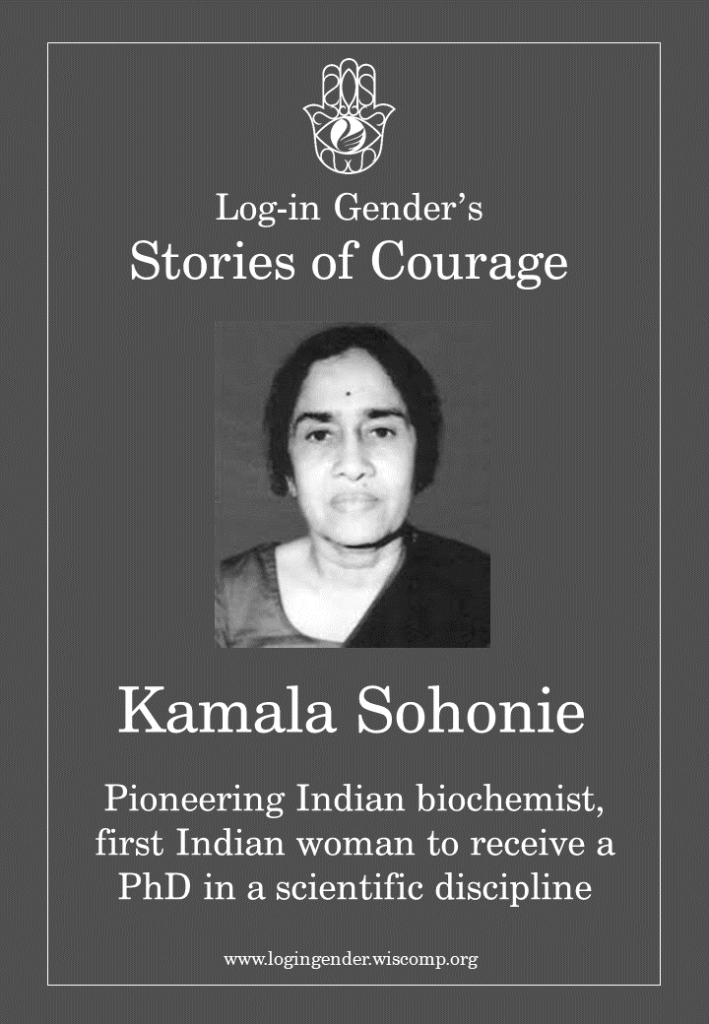
However, C. V. Raman refused to grant her admission on account of her being a ‘girl’. Kamala Sohonie (then Kamala Bhagvat) refused to accept this discriminatory and exclusionary attitude and demanded a clear and official justification as to why she would not be admitted. Finding that he could give no justification, Raman relented and Kamala Sohonie was granted admission. This admission, however, was on probationary basis and on the guarantee that she would not adversely impact the environment of the lab. Although she accepted these slights at the time, in order to be able to pursue her education, she never forgot the injustice and often spoke about the top-down discriminatory attitudes towards women in science in India.
After earning her MSc from IISc, she went on to earn her PhD from the University of Cambridge. Despite the fact that her thesis was significantly shorter than those of her contemporaries, her research was impressive. She was appointed Professor and Head of the Department of Biochemistry at Lady Hardinge Medical College in New Delhi.
Her major work is on ‘Neera’ or palm extract, upon which she embarked at the suggestion of the then-Indian President Dr Rajendra Prasad. This research found that Vitamins A and C and iron survived concentration of Neera into palm jaggery and molasses. Neera would become an inexpensive dietary supplement that could be added to the diets of malnourished adolescents and pregnant women from tribal communities. She was awarded the Rashtrapati Award for this work.
Sources
- https://www.thebetterindia.com/91026/kamala-sohonie-india-woman-scientist-iisc-cambridge/
- https://www.ias.ac.in/public/Resources/Initiatives/Women_in_Science/Contributors/kamalasohonie.pdf
- https://www.ias.ac.in/article/fulltext/reso/021/04/0301-0314
- https://www.livehistoryindia.com/history-daily/2018/08/24/the-first-lady-of-indian-science
- https://feminisminindia.com/2017/12/25/kamala-sohonie-phd-science/
- https://en.wikipedia.org/wiki/Kamala_Sohonie
